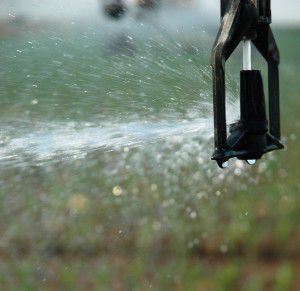Major Ogallala Aquifer Project
Published on by Water Network Research, Official research team of The Water Network in Academic
Major Ogallala Aquifer project meeting set March 31 in Amarillo
The inaugural meeting of this new project will be March 31-April 1 in Amarillo, said Dr. Brent Auvermann, an agricultural engineering specialist with joint AgriLife Extension and AgriLife Research appointments in Amarillo.
“We wanted to meet early in the project, agree on our expectations of one another and build a solid framework for accountability,” Auvermann said.
The four-year grant supporting the project is funded by the U.S. Department of Agriculture National Institute of Food and Agriculture.
“For many years, researchers have been developing more efficient irrigation techniques, water-efficient crop varieties and water-conserving soil management methods,” Auvermann said. “But we’re still draining the aquifer. It’s time to put all of the pieces together, and it’s time for each of the affected states to learn from the others.”
Colorado State University is the overall lead and the Texas Water Resources Institute in College Station will serve as the Texas lead for this project under USDA’s Water for Agriculture Challenge Area.
Other participating entities include University of Nebraska-Lincoln, Kansas State University, Oklahoma State University, New Mexico State University, Texas Tech University, West Texas A&M University and the USDA-Agricultural Research Service.
“The Ogallala Aquifer and the agricultural production reliant upon it are critical to the long-term sustainability of not only the region, but also food security for the United States,” said Dr. Kevin Wagner, Texas Water Resources Institute deputy director in College Station. “Through this collaboration, we hope to extend the life of the aquifer and develop long-term solutions supporting sustainable agricultural production in the region.”
The water institute and AgriLife Extension participants on this project will be engaged primarily in technology transfer efforts, including leveraging AgriLife Extension venues and networks to address different audiences and stakeholders and their diverse information and education needs.
Dr. Dana Porter, AgriLife Extension agricultural engineering water management specialist in Lubbock, said the wide variety of simulation models now available to researchers – hydrology, crop, soil and climate models, along with the expansive databases required to make these models run – now have to be integrated.
“Our models are good, but they don’t talk to each other very well,” Porter said. “We’re going to change that. We can’t ask farmers, ranchers and water-resource managers to adopt long-term strategies that affect their bottom lines if the strategies aren’t well thought out, coherent and sensible.”
Target audiences will include technical and policy advisors and managers; researchers and educators; agricultural and irrigation industry providers; and other stakeholders.
Also information on irrigation technologies, cropping system management practices and decision-support tools to improve water-use efficiency will be distributed to agricultural producers and landowners; technical, policy and economic advisors; industry and agribusiness; and the research and education community using established AgriLife Extension venues.
Participating AgriLife Research scientists will assist the project team with field research efforts related to optimizing limited early season irrigation, overcoming poor germination associated with subsurface drip irrigation and evaluating crop rotations among drought tolerant crops where the primary water resource is rainfall supplemented by limited irrigation.
The effort to improve irrigation efficiency also will include further development of the Dashboard for Irrigation Efficiency Management in conjunction with the Texas Center for Applied Technology, part of the Texas A&M Engineering Experiment Station.
Read More Related Content On This Topic - Click Here
Media
Taxonomy
- Agriculture
- Irrigation
- Aquifer